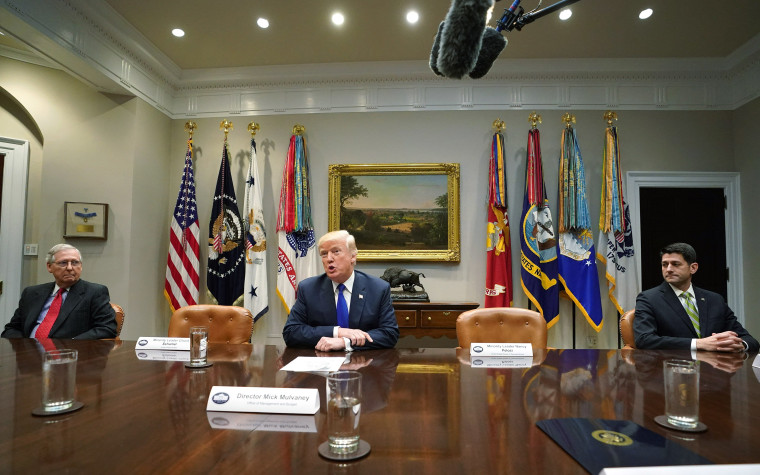Over the last 24 hours, Donald Trump has echoed a fairly specific observation, which he clearly expects people to believe. Here, for example, was the president before his meeting with Senate Republicans yesterday, after being asked about keeping his party unified during the government shutdown.
"We have great Republican support, as you know. You know, you're just making that up. But we have tremendous Republican support.... There is tremendous Republican support -- unwavering."
And here he was after the meeting.
"I would say that we have a very, very unified party.... I just left an hour meeting. We had a great time, actually. There was no discussion about anything other than solidarity. I just want to tell you that the Republicans are totally unified.... The Republicans are unified.... They're with us all the way. They're with us all the way."
And here he was this morning.
"The Republicans are extremely united.... I don't think I've ever seen unity like this in the Republican Party."
As a rule, when Trump repeats phrases like these over and over again, it reflects anxiety-driven dishonesty. In this case, the president probably realizes that Republicans are increasingly divided over his shutdown strategy -- the number of House GOP defections grew a bit yesterday, and Senate Republican divisions are increasingly hard to overlook -- which is why he feels compelled to say the opposite.
But let's say for the sake of conversation that he's right. Let's say the White House has invested considerable energy into preventing intra-party defections, and those efforts have paid off.
Then what?
As the government shutdown prepares to reach the three-week mark, it makes sense that the president wants to prevent additional Republican defections. After all, we're talking about an issue that unites Democrats and divides the GOP. The more Republicans balk, the harder it will be for Trump to keep this fiasco going.
But what's even more challenging is identifying the next step. Here's the model as it currently exists:
1. Shut down the government.2. Keep Republicans unified.3. ???4. Get a giant border wall.
This obviously isn't working, which is why the president may need a new plan. More on that in about 90 minutes.
